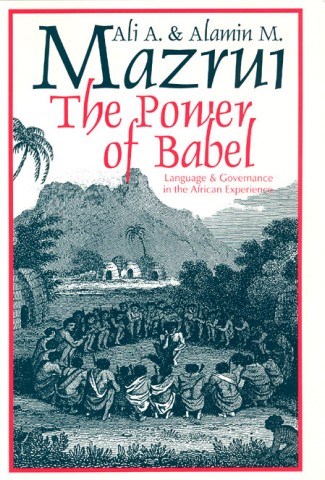Language & Governance in the African Experience
Notes from The Power of Babel: Language & Governance in the African Experience (1998) by Ali A. Mazrui and Alamin M. Mazrui"
"One of the gross linguistic anomalies of post-colonial Africa, in fact, is that whole classes of countries are named after the imperial language they have adopted as their official language. We do constantly refer to 'Francophone Africa,' 'English-speaking Africa,' 'Lusophone Africa' and the like. Asia, too, was colonized; and yet nobody refers to 'Anglophone Asia' or 'French-speaking Asian countries.' (p. 6)
"… how much of a choice of synonyms do I have when I want to discuss blackmail? Or something sold on the black market? It is true that most of the time when we are using these words we are not connecting them with any racist tradition with associates black with evil and white with goodness. The metaphor is so much part of the English language, beautifully integrated, ready for use unconsciously in a spontaneous flow. As metaphor, black has carried repeatedly, and in a variety of contexts, decidedly negative connotations. White has ambivalent connotations but, more often than not, favourable ones. The connotations have been stabilized that users of the language are unconscious of those wider links with racist traditions. But does not the unconsciousness make the situation even worse?" (p. 25)
"What all this suggests, then, is that language as an instrument of liberation must be based, not on a reversal of values accorded to European versus African languages on the basis of a preconceived paradigm of linguistic determinism, but on disalienation that seeks to pose new terms of reference altogether. For as long as the struggle for mental liberation is defined in terms that confirm to the European ideal of humanity and civilization it will only turn out to be an upward spiral to further alienation and conceptual imprisonment." (p. 62)
"It appears, then, that democracy would develop on firmer foundations on the systemic, economic, social, and cultural planes if African nations pursued language policies that reduced dependence on Western languages, push African languages more towards the centre of the political and economic arenas, and consolidated the use and development of their local languages of wider communication." (p. 107)
"Not using indigenous African languages in the legal process is damaging not only to the rule of law but also, of course, to the indigenous languages themselves. The languages are marginalized in some of the fundamental areas of civil society – law and order, governance and civil liberties." (p. 114)

